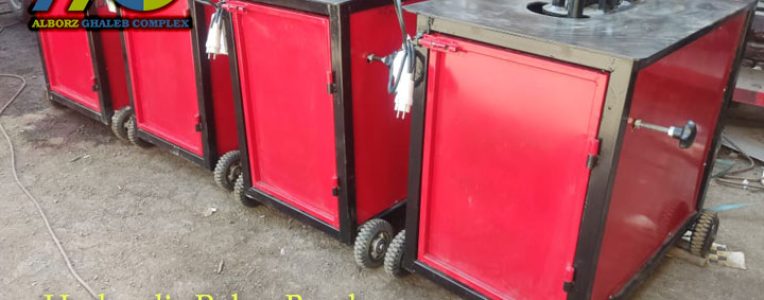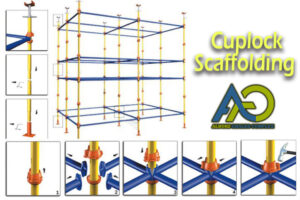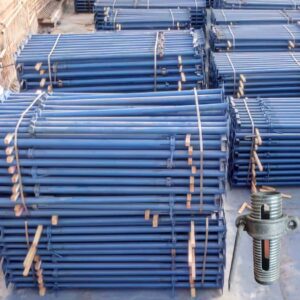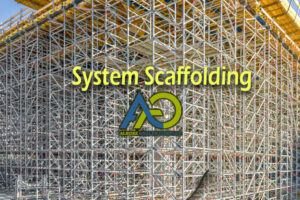Introduction to Hydraulic Rebar Benders
Hydraulic rebar benders have revolutionized the way tasks are performed and offer significant advantages compared to traditional manual and mechanical benders.
How Hydraulic Rebar Benders Work
Hydraulic rebar benders use hydraulic pressure to apply force and perform bending operations for rebar production. They consist of a hydraulic pump, hydraulic jack, and an angular arm. When pressure is applied to the pump, hydraulic fluid flow is generated, which then moves the cylinder and causes the angular arm to rotate.
Components of Hydraulic Rebar Benders
Key components include the hydraulic pump, hydraulic jack, electric hydraulic valve, and hydraulic connecting hoses. These parts work together to apply precise torque and provide optimal performance.
General Specifications of Hydraulic Rebar Benders
• Electric rebar bender machine – Hydraulic system
• Equipped with a single-phase motor 3HP 1400R.P.M
• Features a 14-liter hydraulic pump
• Adjustable bending handle at 90 degrees
• Capable of bending rebar from T6Alll to T22Alll into various geometric shapes (hexagonal, square, parallelogram).
• Weight: 170 kilograms
• Length x Width x Height: 85.70.110 cm
• Available in both single-phase and three-phase models
• The machine comes with a six-month warranty from the date of purchase, along with years of after-sales service provided by the manufacturer.
Applications of Hydraulic Rebar Benders
Hydraulic rebar benders are used in places where high power is needed for producing rebar with thick diameters, and where the possibility of using a three-phase machine may be limited.
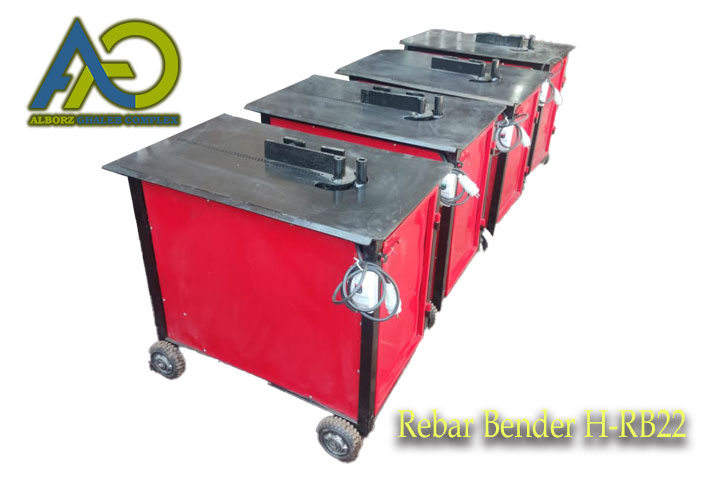
Advantages of Using Hydraulic Rebar Benders:
1. High Power in Rebar Production:
Hydraulic rebar benders, utilizing hydraulic systems, offer high power capabilities for bending thick rebar and producing rebar in larger sizes.
2. Safety Features:
Hydraulic rebar benders are equipped with safety features such as overload protection and automatic shutdown mechanisms, reducing hazards and risks in the work environment.
Factors to Consider When Choosing a Hydraulic Rebar Bender:
1. Bending Power:
The size and capacity of the rebar bender should be selected based on specific task requirements. Factors such as maximum torque and working pressure need to be taken into account.
2. High Pressure and Torque Production:
It’s important to choose a rebar bender with adequate pressure to ensure compatibility with applications and prevent damage to the hydraulic system and equipment.
Maintenance Tips for Hydraulic Rebar Benders:
1. Regular Inspection:
Periodic inspection is essential to check for signs of wear, damage, or leaks. Promptly address any issues to prevent serious damage and ensure optimal performance.
2. Lubrication and Cleaning:
Regular lubrication of moving parts and cleaning of hydraulic components help maintain smooth operation, extend the lifespan, and ensure optimal performance of the hydraulic rebar bender.
Common Problems:
1. Leakage Issues:
Leaks in hydraulic lines or connections can affect the performance of the hydraulic rebar bender. Regularly inspect lines and connections and replace damaged parts to prevent leaks.
2. Pressure Reduction:
Sudden reduction in hydraulic pressure may indicate a problem with the pump or hydraulic system. Check for leaks, air bubbles, or worn-out components to address the issue.
Comparison between Hydraulic and Manual Rebar Benders:
1. Efficiency and Speed:
Hydraulic rebar benders offer higher efficiency and greater torque compared to manual benders, resulting in reduced labor costs and increased productivity.
2. Accuracy and Precision:
Manual rebar benders rely on human strength and judgment, which can lead to various inconsistencies in torque application. Hydraulic rebar benders provide precise torque control, ensuring uniform torque and reliable results.
3. Financial Performance:
Although hydraulic rebar benders have higher initial costs, their efficiency, durability, and reduced maintenance needs often result in long-term cost savings compared to manual benders.
Conclusion:
Hydraulic rebar benders, with their advanced technology, have become essential tools used in various industries. From high accuracy and precision to versatility and reliability, hydraulic rebar benders are a preferred choice for many industries. With proper maintenance and safety measures, these tools can provide optimal performance and safety, contributing to the advancement of production and industrial structures.
For further information, please contact the following numbers:
Mobile:
09121390683
09103614454
09351390683
Telephone:
02634720146
02634720147
Direct access to WhatsApp: [WhatsApp Link](https://wa.me/c/989121390683)
Website: [www.alborz-ghaleb.com](www.alborz-ghaleb.com)
Telegram, WhatsApp: 989121390683


